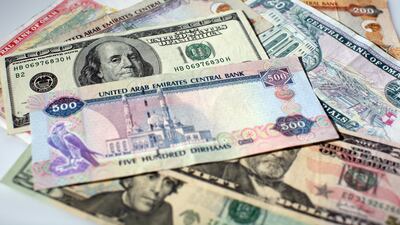The GCC countries have enjoyed a strong performance in 2022 on several fronts. We expect economic growth in the region to come in at around 7 per cent on a nominal gross domestic product-weighted basis, the fastest in more than a decade.
This has largely been driven by double-digit growth in oil production across the region as the pandemic-related production cuts were fully unwound.
However, the non-oil sectors have performed well too, and we expect average non-oil GDP to reach 4.4 per cent this year, similar to the growth rate achieved across the GCC in 2021, even as global growth has slowed this year.
Domestic demand has continued to rebound from the pandemic and the recovery in global travel and tourism has also supported the non-oil sectors, particularly in the UAE.
Expo 2020 Dubai contributed to strong growth in the UAE’s tourism and hospitality sectors in the first quarter of 2022, and the reopening of long-haul markets has seen visitor numbers rebound sharply from last year, although they remain around 15 per cent below 2019 levels through September.
The FIFA World Cup tournament in Doha is expected to support demand in the fourth quarter, even as the global economy has started to slow.
GCC budget performance has also improved significantly this year on the back of higher oil production and prices, as well as the broader economic recovery in the region. We estimate the average GCC budget surplus will reach almost 8 per cent of GDP this year following seven years of deficits.
While government spending has increased slightly this year, governments have remained relatively prudent with their oil windfall, using budget surpluses to build up reserves, pay down debt and invest for the future.
The GCC countries have also provided financial support to other Mena countries that have faced current account shocks this year on the back of rising energy and food prices.
The outlook for the GCC in 2023 remains constructive. GDP growth will slow sharply as the 16 per cent increase in oil and gas GDP that we saw this year is unlikely to be repeated, and further production cuts from Opec+ pose a downside risk to growth in this sector in 2023.
Non-oil GDP is also expected to slow somewhat next year but is likely to remain relatively robust as governments continue to invest in strategic sectors and projects to diversify their economies. Our baseline forecast is for oil prices to remain above $100 a barrel next year, which will allow governments to maintain spending even as private investment slows.
However, there are headwinds to growth in the coming months amid a slowing global economy and a strong US dollar. The tightening in monetary policy that we have seen in 2022 will continue to weigh on global economic growth in 2023 as central banks focus on bringing inflation down.
Overall, we expect average GDP growth in the region to slow to 3.5 per cent in 2023, half our estimated growth rate for this year. In a world where several developed economies are forecast to be in recession, however, the GCC looks set to remain an outperformer in the global context next year.
Khatija Haque is chief economist and head of research at Emirates NBD

